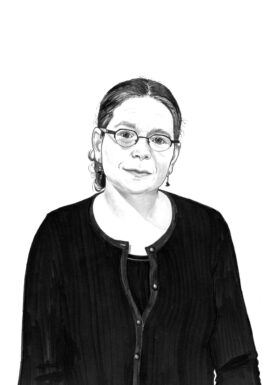-
Ammodo Science
Award for groundbreaking research2024 -
Ammodo Science Award
The Ammodo Science Award for groundbreaking research is intended to stimulate potentially groundbreaking research. Such research is usually the result of team work, and for that reason this Award is for research being carried out by a group of researchers working together, and is intended to recognise the contribution of every member of the group. The Award is presented every two years in four scientific domains: Biomedical Sciences, Humanities, Natural Sciences and Social Sciences.
-
Nomination & Selection
Each edition, the Ammodo Science Award for groundbreaking research includes a cash prize of 1,600,000 euros for each of the science domains Natural Sciences and Biomedical Sciences and a cash prize of 800,000 euros for each of the science domains Humanities and Social Sciences. The rectors of the fourteen Dutch universities affiliated to Universities of The Netherlands (UNL) may nominate a maximum of one research project per scientific domain.
-
Winners
The Ammodo Science Award for groundbreaking research focuses on potentially groundbreaking research and ensures that all researchers involved in the winning project are recognised and rewarded.
Alicia Montoya
Laureate Humanities 2017

Alicia Montoya (1972) studied French language and literature at the University of Amsterdam, and African Studies at the University of Leiden, where she was awarded her PhD.
As a postdoctoral researcher she initially worked at the universities of Leiden and Groningen. Since 2012 she has been affiliated to the Radboud University in Nijmegen, and is now a professor of French literature and culture.
She is the founder and director of the Research Centre France-Netherlands, an interuniversity platform for research, education and information about French culture and society.
In 2016 she received a prestigious Consolidator Grant of €2 million from the European Research Council.
WebsiteResearch focus
Montoya researches the circulation of books and the concepts of the Enlightenment in the eighteenth century.
Hegemony of faith or science
According to current thinking Europe went through a revolutionary philosophical change in the eighteenth century: the old world view founded very much on religious beliefs made way for a worldview that relied on observation and a society based on individual rights. Experiments proved that nature was governed by laws which were inconsistent with Biblical texts. Reliance on knowledge and reason supplanted the hegemony of faith.
The ‘Enlightenment’ can be seen as the foundation of the modern Western world and its principles, such as the separation of church and state.
Alicia Montoya is questioning this portrayal of European history. Her research into the reading culture at the time of the Enlightenment suggests that the writings of innovative philosophers such as Descartes, Spinoza and Rousseau were less well read at that time than is often thought.
Catalogues of booksellers from the period show, for example, disappointing sales figures for the Enlightenment books and pamphlets, whilst religious books barely lost any of their popularity.
By means of a large European research project Montoya is seeking the answer to the question of whether the Enlightenment really penetrated as deeply into society as is often thought. How and to what extent were the middle classes influenced by knowledge of the new thinking? Was their religious worldview actually replaced by an understanding based on reason and science? Or did religion, in fact, simply take on a tint of Enlightenment?